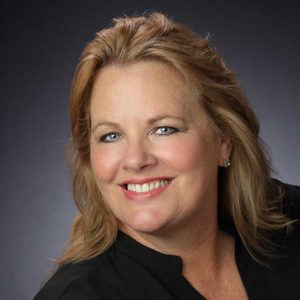Whether or not a reverse mortgage is the right financial option for your parents is a personal decision that should be weighed carefully.
Should my parents get a reverse mortgage?
With the recent volatility in retirement savings and home values, children of seniors are concerned about their parents being able to finance the remainder of their lives, even if they have been diligent about retirement planning.
A majority of aging Americans have their wealth tied up in their home equity. If your parents are struggling to pay monthly bills or cover healthcare expenses, then accessing that equity might be a good solution. A reverse mortgage is a popular financial product that allows them to do just that.
Whether or not a reverse mortgage is the right financial option for your parents is a personal decision based on many factors that should be weighed carefully. In most cases, parents prefer to discuss this option with their children before making a decision.
Answers to questions about reverse mortgages
What is a reverse mortgage?
A reverse mortgage, also called a home equity conversion mortgage (HECM), is a loan available to homeowners, 62 years or older, that allows them to convert part of their home equity into cash.
It’s called a “reverse mortgage” because instead of making monthly payments to a lender — like with a traditional mortgage — the lender makes payments to the borrower.
What is the purpose of a reverse mortgage?
Reverse mortgages were conceived as a novel way to help people near retirement age use their home equity to pay off debts, cover monthly living expenses, and pay for healthcare.
There are no restrictions on how a borrower may use their reverse mortgage proceeds. In fact, many homeowners use a reverse mortgage as part of a comprehensive retirement plan to enhance their financial security.
Will the bank own my parents’ home if they get a reverse mortgage?
No. With a reverse mortgage, the borrower always retains title to the home. At no point does the lender own the home — even after the last surviving spouse permanently vacates the property.
Will a reverse mortgage increase my parents’ monthly expenses?
No. Reverse mortgage borrowers are not required to pay back the loan until the home is sold or vacated. As long as your parents live in the home, they are not required to make any monthly payments towards the loan balance. However, they must remain current on homeowners insurance and property taxes.
How much will a reverse mortgage cost?
Many of the same fees required for a traditional home mortgage must also be paid to get a reverse mortgage. These fees can amount to several thousand dollars, but they can be paid from the loan proceeds, which means there’s very little out-of-pocket expense.
When the loan is eventually paid off, the balance equals the amount borrowed, plus interest and mortgage insurance. The loan balance grows as the borrower continues to live in the home. In other words, when the borrower sells or leaves the house, they will owe more than originally borrowed.
Set aside accounts
If you don’t have enough residual income the lender may require a life expectancy set aside (LESA) account to cover taxes and insurance.
The amount set aside in this account is calculated to pay taxes and insurance costs for the borrower’s life expectancy, so the total will depend on the age of the borrower.
The LESA account is a way to help financially insecure borrowers plan for insurance and property tax payments, and can give peace of mind to family members that these obligations are being paid.
Borrowers who are assessed to be financially sound can get a reverse mortgage and continue to pay these expenses directly themselves.
What happens if the balance owed is more than the value of the home? Are my parents responsible for paying it?
No matter how large the loan balance, your parents (or their heirs) will never have to pay more than the appraised value of the home or the sale price. This feature is referred to as “non-recourse.”
If the loan balance exceeds the appraised value of the home, then the Federal Housing Administration (FHA) insurance fund absorbs that loss. The government pays for it with proceeds from its insurance fund, which the borrower pays into at closing and on a monthly basis.
How much money will my parents receive?
Fund eligibility depends on the age of the youngest parent, property value, interest rate, and upfront costs. The older a person is, the more proceeds he or she can receive.
Funds can be delivered as a lump sum, as a line of credit, or as fixed monthly payments; either for a specified period of time or for as long as your parents live in the home. Your parents can also combine options. For example, they can take part of the proceeds as a lump sum and leave the balance in a line of credit.
If a parent gets a reverse mortgage, what are their responsibilities?
Primary lien: A reverse mortgage must be the primary lien on a home. Any prior mortgage must be paid in full to acquire the reverse mortgage. The proceeds from a reverse mortgage can be used for this purpose.
Property condition: Your parents are responsible for completing any necessary repairs and maintaining the satisfactory condition of their property.
Occupancy requirements: The property used as collateral for the reverse mortgage must be your parents’ primary residence.
Taxes and insurance: Your parents must remain current on their real estate taxes, homeowners insurance, and any applicable association fees, or they are susceptible to default (see “Set aside accounts” above).
Rights of non-borrower residents: Any non-borrower residents living in the home who are not on the title, must understand what happens when the owner permanently vacates the property (by death or move), and the loan becomes due and payable.
These situations should be discussed with a qualified loan officer prior to closing. In the case of a couple, if one spouse is under 62, it may be possible for that person to continue living in the home after the older spouse passes away — as long as certain conditions are met.
If a disabled son or daughter is living at home — and the parents get a reverse mortgage — that son or daughter may have to find other housing arrangements once the loan becomes due and payable. In such situations, options should be explored ahead of time on how to pay off the reverse mortgage.
My parents want to downsize. Can a reverse mortgage help them?
A typical retiree uses a reverse mortgage to eliminate debt, pay for healthcare, and cover daily living expenses. However, a growing segment of the senior population are using a type of reverse mortgage to purchase homes that better suit their needs.
What is a reverse mortgage purchase?
The advantage of using what is known as a Home Equity Conversion Mortgage (HECM) for purchase is that the new home is bought outright using funds from the sale of the old home, private savings, gift money, and other sources of income.
These funds are then combined with the reverse mortgage proceeds. This home buying process leaves the homeowner with no monthly mortgage payments.
Speak with a professional
Reverse mortgages are complicated. Even for many seasoned lenders, they can be tough to navigate. To make matters worse, there’s a lot of misinformation and just plain bad advice out there. If you’d like to speak with some smart folks who can clear away the jargon and explain these loans in simple terms, we’d be happy to help.

